Telugu Calendar 2025: A Comprehensive Guide To The Telugu Panchangam
Telugu Calendar 2025: A Comprehensive Guide to the Telugu Panchangam
Related Articles: Telugu Calendar 2025: A Comprehensive Guide to the Telugu Panchangam
- 5-Year Calendar 2025-2027: A Comprehensive Overview
- December 2025 Calendar With Holidays
- F1 Calendar 2025: Africa Set To Host Grand Prix In Historic Expansion
- Calendario 2025 Cute Para Imprimir: Tambahkan Sentuhan Manis Pada Tahun Anda
- 168 Days After May 2025 Calendar
Introduction
With enthusiasm, let’s navigate through the intriguing topic related to Telugu Calendar 2025: A Comprehensive Guide to the Telugu Panchangam. Let’s weave interesting information and offer fresh perspectives to the readers.
Table of Content
Video about Telugu Calendar 2025: A Comprehensive Guide to the Telugu Panchangam
Telugu Calendar 2025: A Comprehensive Guide to the Telugu Panchangam
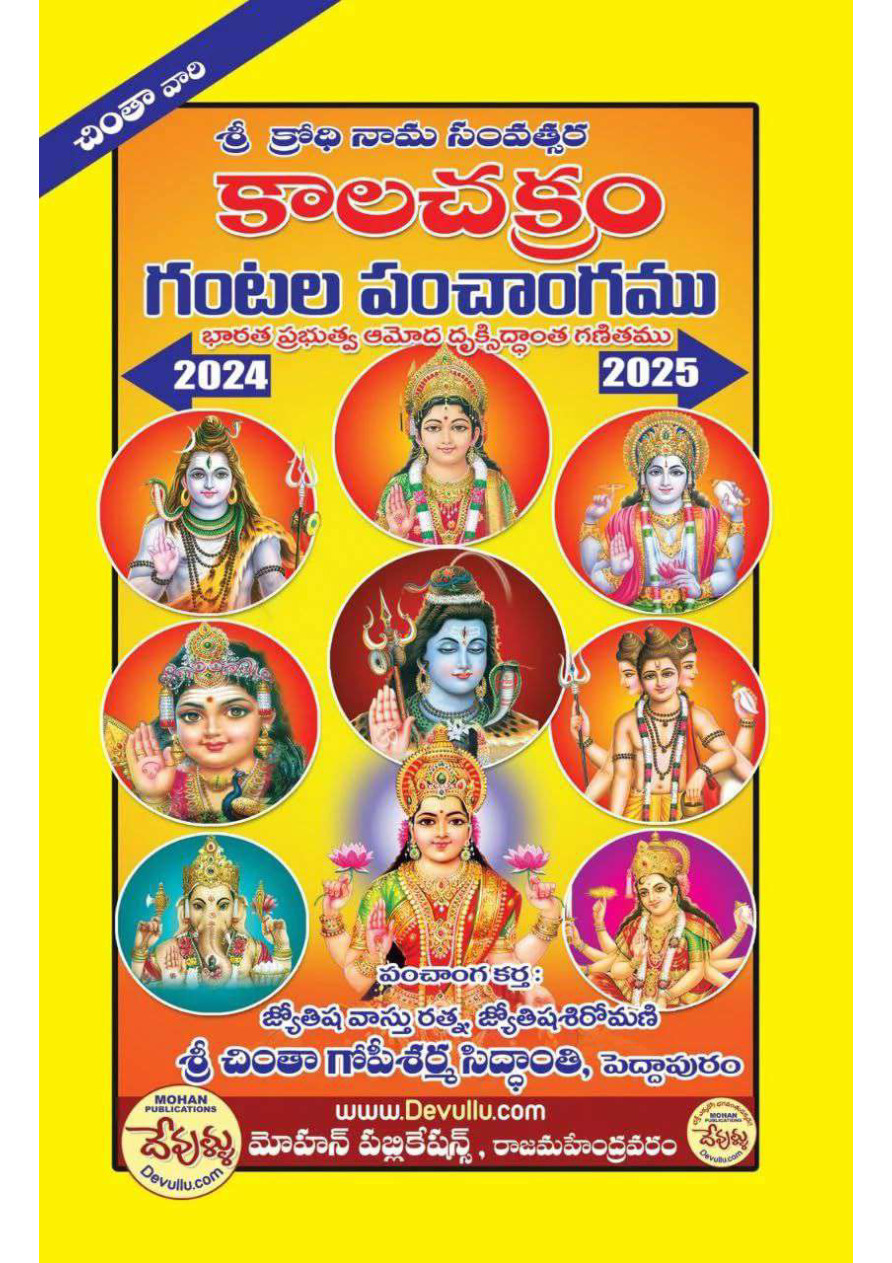
Introduction
The Telugu calendar, also known as the Telugu Panchangam, is a traditional Hindu calendar widely used in the Indian states of Andhra Pradesh and Telangana. It is based on the lunisolar system, which combines the cycles of the moon and the sun. The Telugu calendar for the year 2025 begins on April 14, 2025, and ends on April 13, 2026.
Months and Days
The Telugu calendar consists of 12 months, each with 30 or 31 days. The months are named after the zodiac signs and are as follows:
- Chaitra (March-April)
- Vaisakha (April-May)
- Jyeshta (May-June)
- Ashadha (June-July)
- Sravana (July-August)
- Bhadrapada (August-September)
- Asvina (September-October)
- Kartika (October-November)
- Margasira (November-December)
- Pushya (December-January)
- Magha (January-February)
- Phalguna (February-March)
Each month is further divided into two fortnights: the bright fortnight (Sukla Paksha) and the dark fortnight (Krishna Paksha). The bright fortnight begins on the day of the new moon and ends on the day of the full moon, while the dark fortnight begins on the day after the full moon and ends on the day of the new moon.
Important Dates and Festivals
The Telugu calendar for 2025 includes several important dates and festivals, including:
- Ugadi (April 14, 2025): The Telugu New Year, celebrated with feasts and religious rituals.
- Sri Rama Navami (March 31, 2025): The birth anniversary of Lord Rama, celebrated with processions and prayers.
- Akshaya Tritiya (April 22, 2025): An auspicious day for buying gold and other valuables.
- Dasara (October 17-25, 2025): A ten-day festival celebrating the victory of good over evil.
- Diwali (November 14, 2025): The festival of lights, celebrated with fireworks, feasts, and prayers.
- Sankranti (January 14-16, 2026): A harvest festival celebrating the sun’s northward journey.
Panchaka and Yoga
The Telugu calendar also includes information about Panchaka and Yoga, which are astrological concepts that influence daily activities.
Panchaka: Panchaka refers to a period of five days during which certain activities are considered inauspicious. These days are:
- Vishti
- Prabalarishta
- Shula
- Ganda
- Yamaghanda
Yoga: Yoga refers to the position of the sun and moon in relation to each other. There are 27 different yogas, each with its own unique characteristics and influences.
Usage of the Telugu Calendar
The Telugu calendar is widely used for scheduling events, planning religious ceremonies, and determining auspicious dates for important occasions such as marriages and business ventures. It is also used to calculate the time for daily rituals and prayers.
Conclusion
The Telugu calendar for 2025 is a valuable resource for individuals and families who follow the Telugu traditions. It provides detailed information about months, days, festivals, astrological influences, and other important events. By understanding the intricacies of the Telugu calendar, one can plan and navigate the year ahead with confidence and cultural understanding.
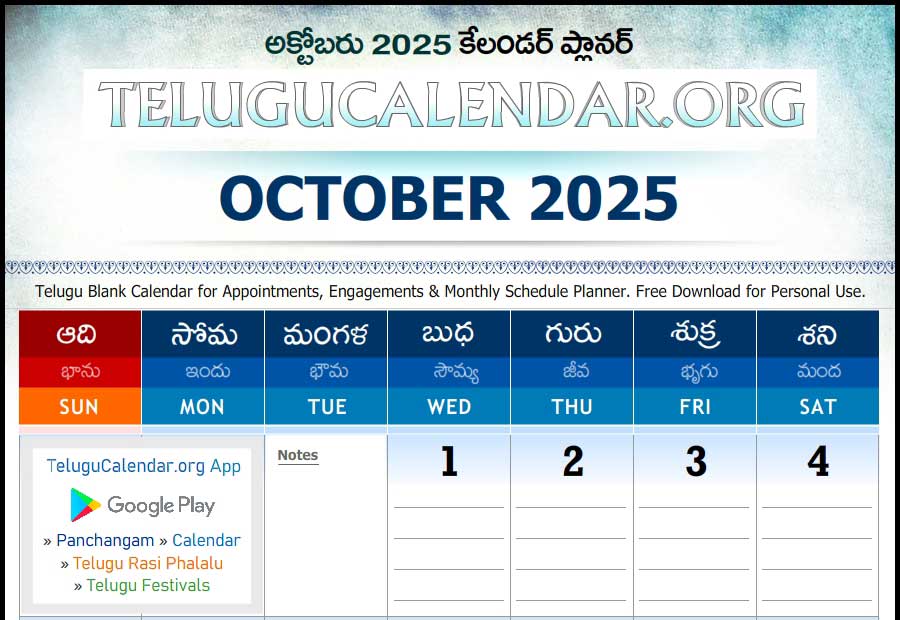
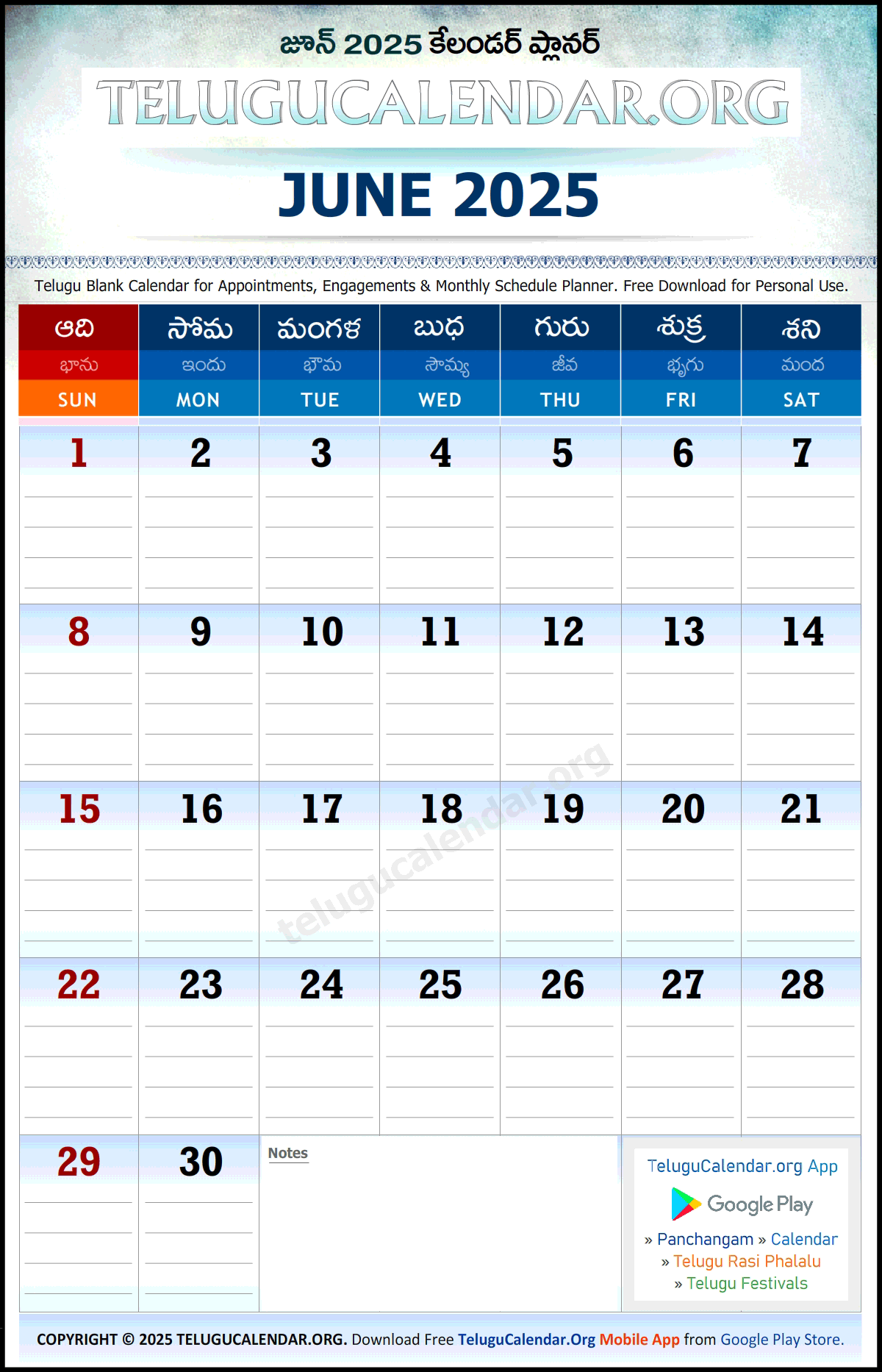

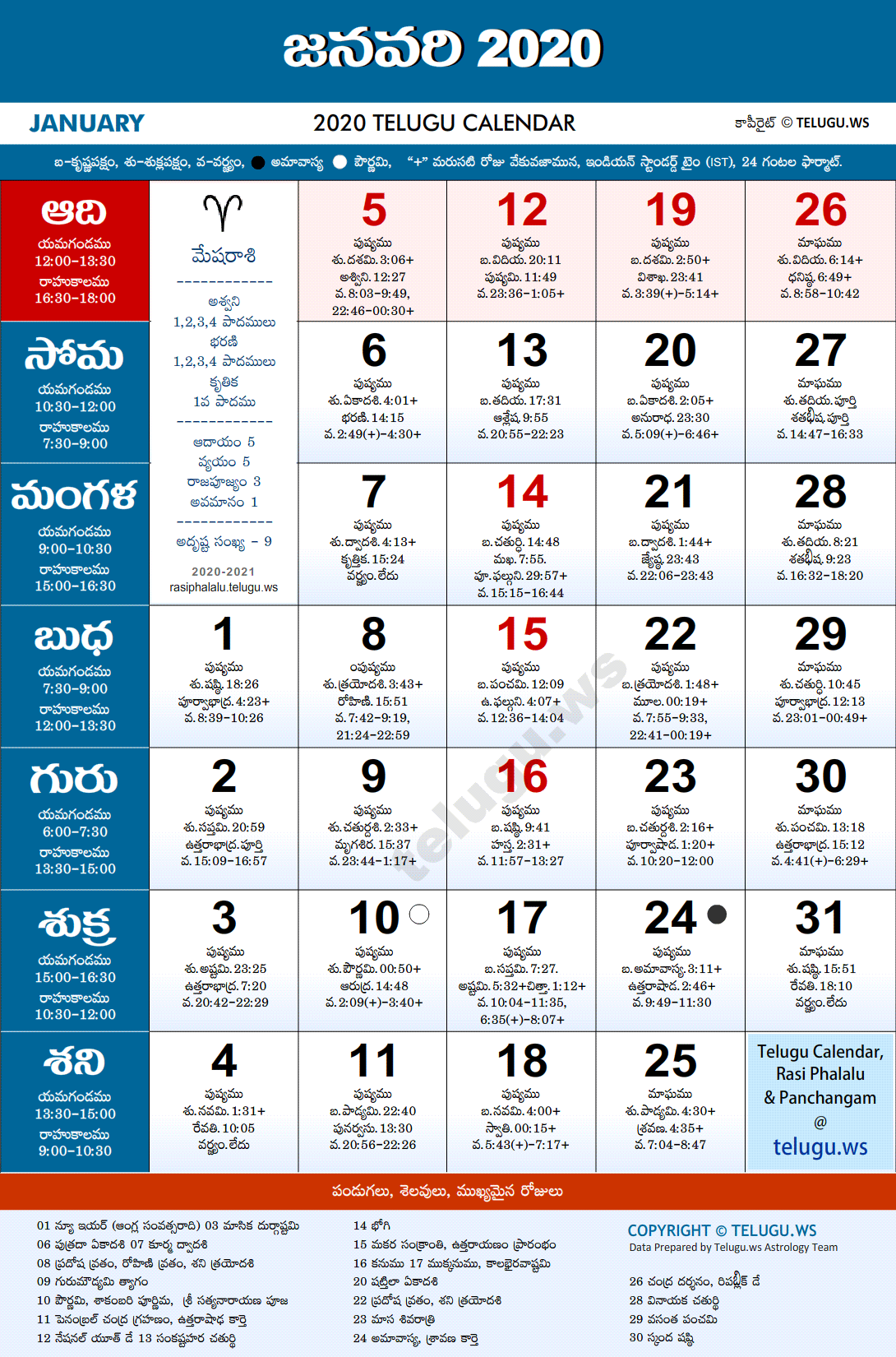


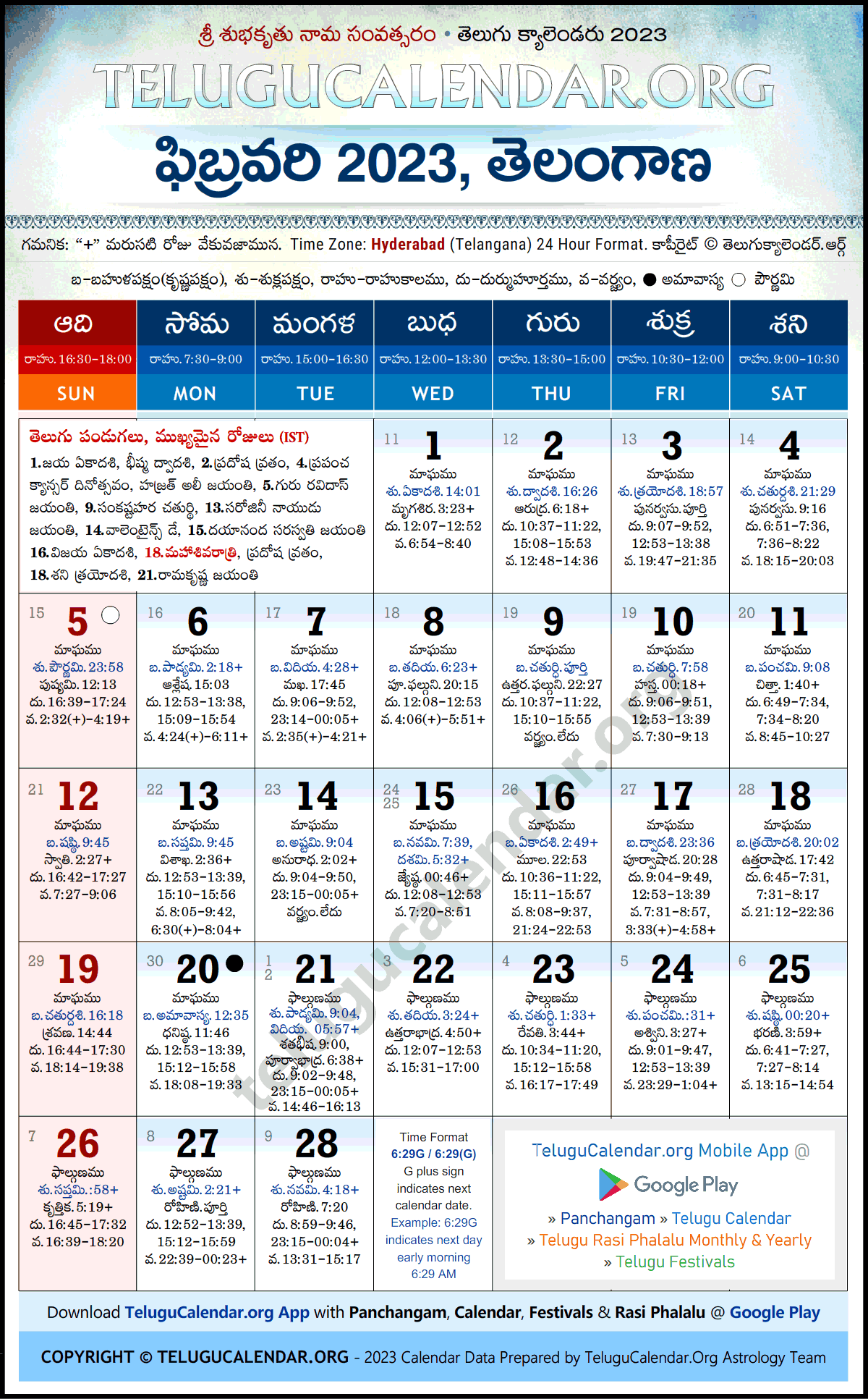
Closure
Thus, we hope this article has provided valuable insights into Telugu Calendar 2025: A Comprehensive Guide to the Telugu Panchangam. We appreciate your attention to our article. See you in our next article!